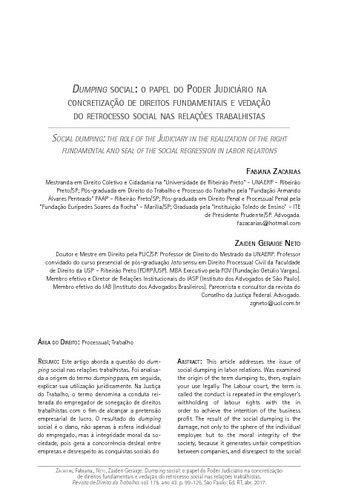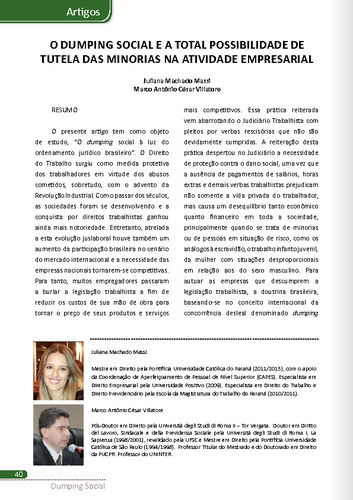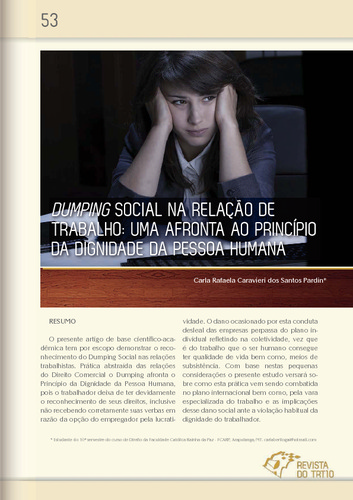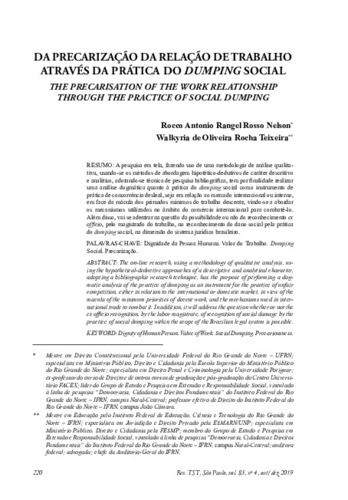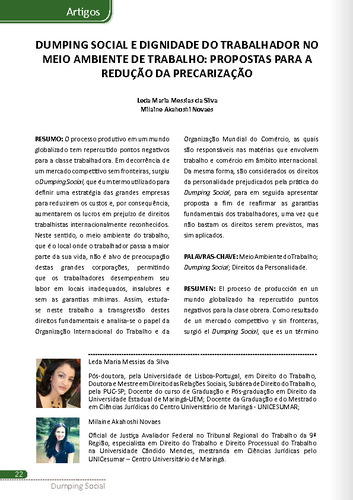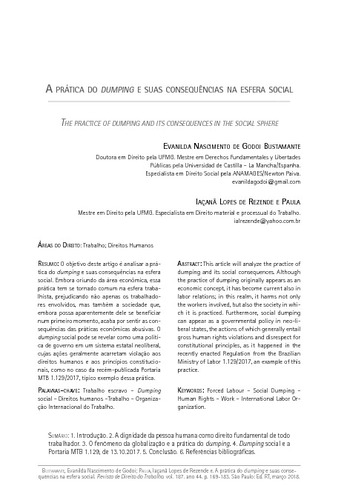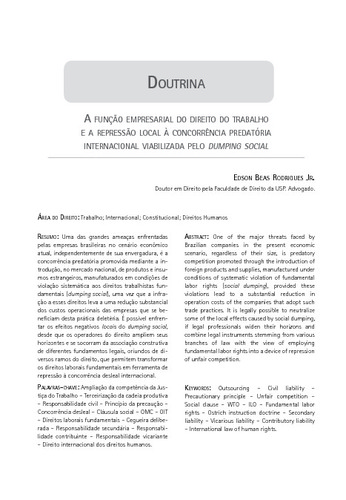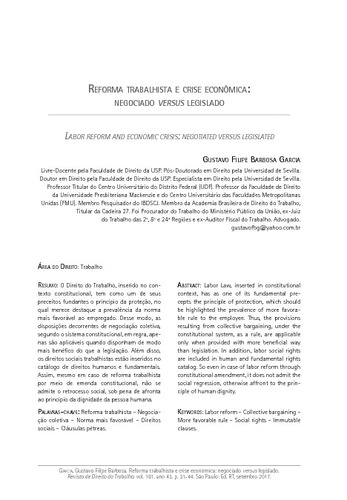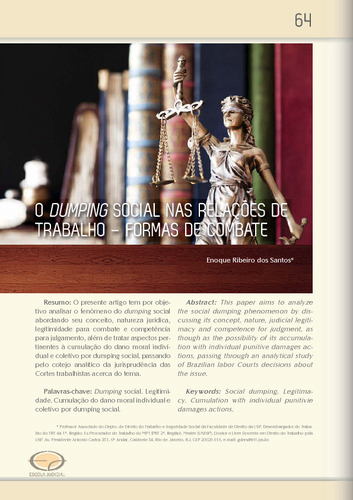Artigo de periódico
Dumping social: o papel do poder judiciário na concretização de direitos fundamentais e vedação do retrocesso social nas relações trabalhistas
| dc.contributor.author | Zacarias, Fabiana | |
| dc.contributor.author | Geraige Neto, Zaiden | |
| dc.date.accessioned | 2017-06-19T15:07:40Z | |
| dc.date.available | 2017-06-19T15:07:40Z | |
| dc.date.issued | 2017-04 | |
| dc.identifier.citation | ZACARIAS, Fabiana; GERAIGE NETO, Zaiden. Dumping social: o papel do poder judiciário na concretização de direitos fundamentais e vedação do retrocesso social nas relações trabalhistas = Social dumping: the role of the judiciary in the realization of the right fundamental and seal of the social regression in labor relations. Revista de direito do trabalho, São Paulo, v. 43, n. 176, p. 99-126, abr. 2017. | pt_BR |
| dc.identifier.uri | https://hdl.handle.net/20.500.12178/105929 | |
| dc.description.abstract | [por] Aborda a questão do dumping social nas relações trabalhistas. Foi analisada a origem do termo dumping para, em seguida, explicar sua utilização juridicamente. Na Justiça do Trabalho, o termo denomina a conduta reiterada do empregador de sonegação de direitos trabalhistas com o fim de alcançar a pretensão empresarial de lucro. O resultado do dumping social é o dano, não apenas à esfera individual do empregado, mas à integridade moral da sociedade, pois gera a concorrência desleal entre empresas e desrespeito às conquistas sociais do Estado Democrático de Direito, em especial aos princípios da dignidade da pessoa humana e do não retrocesso ocial. O Poder Judiciário trabalhista, em decisões que evidenciam limite à livre iniciativa e destacam a função social da empresa, tem condenado a prática de dumping social, determinando o ressarcimento do dano social. | pt_BR |
| dc.description.abstract | [eng] This article addresses the issue of social dumping in labor relations. Was examined the origin of the term dumping to, then, explain your use legally. The Labour court, the term is called the conduct is repeated in the employer’s withholding of labour rights with the in order to achieve the intention of the business profit. The result of the social dumping is the damage, not only to the sphere of the individual employee but to the moral integrity of the society, because it generates unfair competition between companies, and disrespect to the social achievements of the Democratic rule of Law, especially the Principles of the Dignity of the Human Person and Not Social regression. The Judiciary labor, in decisions that highlight the limit on the free initiative and highlight the social function of the company, has condemned the practice of social dumping, and determining the compensation of the social damage. | pt_BR |
| dc.description.tableofcontents | A exploração do trabalhador através da prática de dumping social no mundo globalizado -- A expressão dumping -- Dumping social -- Princípio da dignidade humana, princípio da proteção e o não retrocesso social -- Dano social: A responsabilização civil do dumping social -- Entendimento jurisprudencial do dumping social | pt_BR |
| dc.language.iso | pt_BR | pt_BR |
| dc.relation.ispartof | Revista de direito do trabalho: vol. 43, n. 176 (abr. 2017) | pt_BR |
| dc.subject | Dumping social, Brasil | pt_BR |
| dc.subject | Dano, aspectos sociais, Brasil | pt_BR |
| dc.subject | Princípio da dignidade da pessoa humana, Brasil | pt_BR |
| dc.subject | Princípio da proteção, Brasil | pt_BR |
| dc.subject | Princípio da proibição do retrocesso social, Brasil | pt_BR |
| dc.subject | Indenização, Brasil | pt_BR |
| dc.subject | Jurisprudência trabalhista, Brasil | pt_BR |
| dc.title | Dumping social: o papel do poder judiciário na concretização de direitos fundamentais e vedação do retrocesso social nas relações trabalhistas | pt_BR |
| dc.title.alternative | Social dumping: the role of the judiciary in the realization of the right fundamental and seal of the social regression in labor relations | pt_BR |
| dc.type.genre | Artigo de periódico | pt_BR |
| dc.identifier.rvbisys | 001097870 | |
| dc.relation.ispartoflink | https://hdl.handle.net/20.500.12178/105293 | pt_BR |
Coleção
-
Artigos9497


